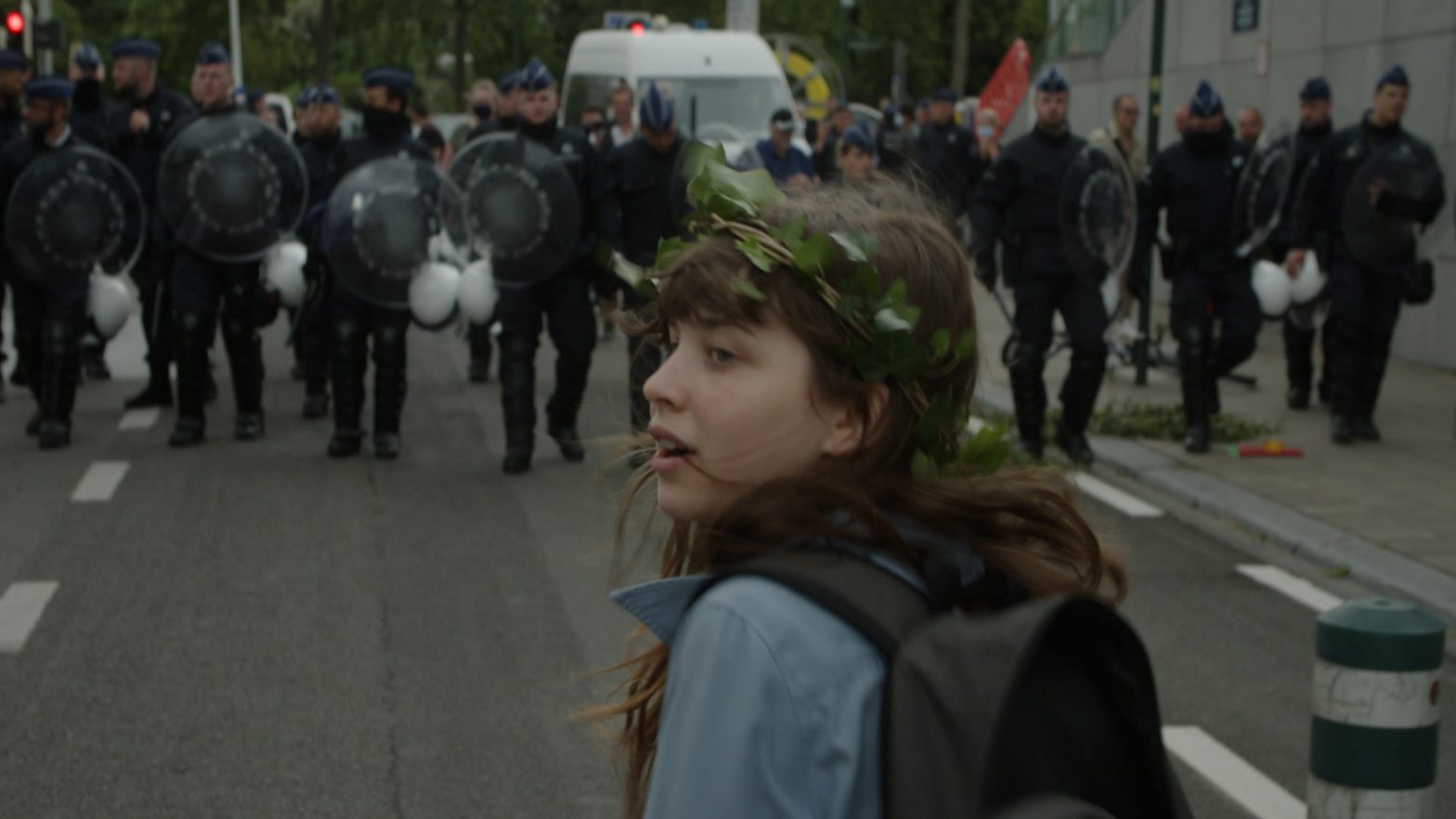Planet B, the second feature film from French director Aude Léa Rapin, made its mark at Fantastic Fest 2024 but left audiences with mixed feelings. A dystopian sci-fi thriller, the film explores timely themes of state control, virtual prisons, and resistance. While it boasts a compelling premise, strong performances, and striking visuals, “Planet B” ultimately falls short in delivering a fully realized narrative, leaving its message somewhat muddled.
The film opens with Julia (Adèle Exarchopoulos), an activist fighting against government oppression, being captured after accidentally killing a policeman during a sabotage mission. Waking up in a seemingly idyllic Mediterranean setting—a luxurious villa by a picturesque beach—Julia soon realizes that this is no paradise. Instead, it’s a virtual prison constructed by the French government to torture and extract information from political dissidents like her mentally. She and her fellow activists are trapped here, subjected to psychological torment as they are forced to confront their worst nightmares in this beautiful but sinister environment.
Exarchopoulos delivers a strong performance, conveying Julia’s physical and emotional turmoil. Souheila Yacoub joins her as Nour, an Iraqi migrant trying to escape her war-torn country. Nour’s story parallels Julia’s in the “real world,” where she steals a VR headset to facilitate her escape to Canada. When Nour unwittingly enters the virtual world of Planet B, the two women’s fates become intertwined, leading to a tense and intriguing dynamic. Yacoub is particularly compelling as a woman torn between her survival and her desire to help Julia.
Planet B presents some intriguing ideas, especially in its government surveillance and control commentary. The virtual prison setting is a clever metaphor for how modern societies can exert control without physical imprisonment, reflecting growing concerns about state overreach and the erosion of personal freedoms. However, while the film touches on these ideas, it doesn’t dig deeply enough to make a lasting impact. The pacing feels uneven, with stretches where the story drags, leaving some of its more thought-provoking themes underexplored.
Visually, Planet B excels. Rapin’s background as a videographer is evident in the film’s sleek aesthetic, particularly in the contrast between the serene beauty of the virtual world and the gritty realities of the outside one. The Mediterranean setting is a striking backdrop for the psychological conflict, creating an unsettling juxtaposition between paradise and imprisonment.
At Fantastic Fest 2024, Planet B stood out as an ambitious work that blends sci-fi with political allegory but doesn’t quite live up to its potential. It’s a visually arresting film with solid performances, but its underdeveloped narrative and thematic shallowness may leave viewers wishing it had gone further in exploring its complex ideas. For fans of dystopian cinema, “Planet B” is worth a watch, but it’s unlikely to leave a lasting impression beyond its striking visuals and timely premise.
